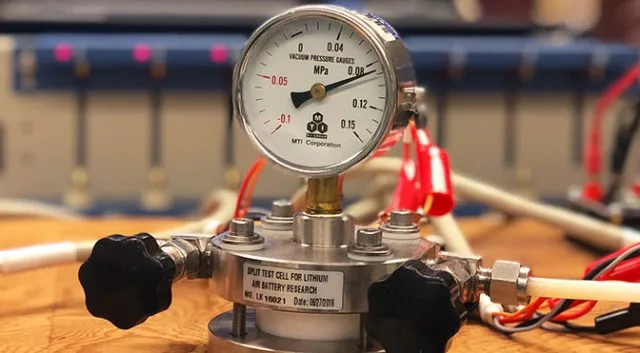Imagine if a genie gave Elon Musk a wish what would he wish for; especially when even genie can’t take him to Mars; then definitely he would go for a battery pack having energy density similar to that of gasoline; because when more than perfectly designed Tesla cars are equipped with a ideal battery pack which could store huge amount of energy it would completely change the way we see electric vehicles today. Not only electric cars but such battery packs could make significant strides in the integration of renewable making solar and wind to contribute to the energy grid same way as nuclear and coal do today.
Keeping fiction aside, researchers working on battery systems claim that they have found such a battery pack called Lithium-Air Battery. Lithium-Air battery is the latest breakthrough development in the field of batteries, everyone is excited about this kind of battery in energy storage circle because it could hold up to five times more energy than the conventional lithium-ion batteries that power almost all kind of consumer electronics and electric vehicles.
These batteries would work by combining lithium present in the anode with oxygen which is normally extracted from the air to produce lithium peroxide on the cathode made of carbon supported with or without catalyst during the discharge phase. During charge phase oxygen is stripped of the cathode and goes back to air outside and lithium goes back to anode. The bad news is that all the experimental performed on lithium-air batteries have been unable to operate feasibly in a true natural-air environment due to the rapid oxidation of the lithium anode and production of undesirable byproducts on the cathode that result from lithium ions combining with carbon dioxide and water vapor in the air. These byproducts agglomerate the cathode, which forms a kind of coating over the cathode making it difficult to function properly. All of the conducted experiments have relied on tanks of pure oxygen -- which limits their practicality, economics and poses serious safety risks due to the flammability of oxygen. But researchers at University of Illinois at Chicago have recently found out that if metallic lithium anode coated with lithium carbonate could significantly improve the performance of battery but still several obstacles have plagued their development.
Lithium Air battery which is quite challenging but promising technology to work with, some of the challenges being faced by scientists globally; rapid decomposition of traditionally organic lithium electrolytes and formation of undesirable electrochemical products on electrodes that result from lithium ions combining with carbon dioxide and water vapor in the air. If we could make Lithium-air battery work then it would definitely accelerate our pace to develop the energy system of the future.
References
https://www.sciencedaily.com/releases/2018/03/180321141345.htm
